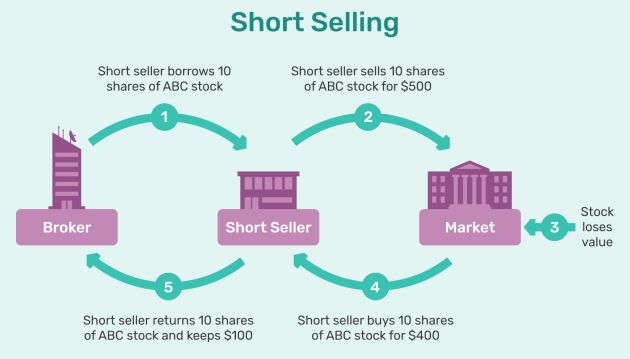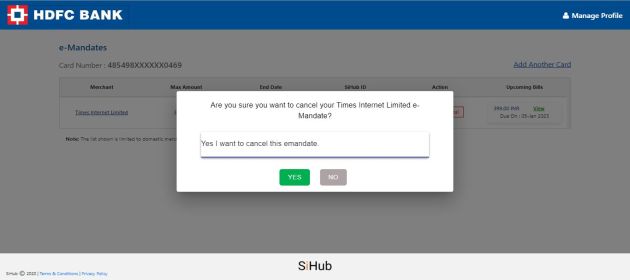(This is a commentary on how shortselling works and not a guide to carry out shortselling.)
I recently posted the following update on social media:
@s_ketharaman: Startup Idea: Hindenburg Research of India. Conduct research in India. Launch hit jobs on foreign companies. 10% of large publicly traded firms in USA allegedly commit securities fraud, so startup has huge TAM. Spend in Rupees. Earn in Dollars. #MakeInIndia #BMKJ
No prizes for guessing the context!
I got a lot of questions in response to my above post. In this blog post, I’ll use my answers to throw more light on shortselling.
Q. What is shortselling?
Shortselling is the act of selling a company’s stock that you don’t own in the hope that its price will fall and you’ll be able to buy it at a lower price and make a profit. If the market dashes your hope and the stock goes up, you’ll make a loss since you’ll be forced to buy the stock at a higher price to close out your short position.
To do a short, you’ll need to borrow stock from a securities lending provider. (Some jurisdictions allow naked shorts that let you sell without borrowing.) Other ways to carry out a short are by buying options and structured financial products on the stock, bond or some other underlying asset belonging to the target company.
Q. Who is Hindenburg Research?
Hindenburg Research is an Activist Shortselling firm based out of USA. The firm has conducted hit jobs against many companies in USA, China, and now India.
Before its latest one on Adani Group of India, the firm’s most famous hit job was on Nikola in 2020 when it put out a report saying that Nikola Corp.’s electric trucks were fake.
That caught the attention of the US Department of Justice and Securities and Exchange Commission, which investigated and concluded that the trucks were indeed fake; the SEC fined Nikola $125 million, its founder was convicted on fraud charges, and Nikola’s stock is down more than 90% since Hindenburg’s report.
– Matt Levine, Money Stuff newsletter entitled Adani Has an Index Problem.
Q. How does activist shortselling work?
Let me copy-paste from Money Stuff:
One important way for activist short selling to work is that a short seller makes a big bet against a company’s stock, publishes a report saying that the company is a fraud, the company publishes a rebuttal saying that actually it is good and the short seller is the fraud, and then some outside referee with some official power evaluates both reports and decides who wins.
Q. Is shortselling legal?
Prima facie, short selling is legal in many jurisdictions (e.g. USA, India) but, as in the case of many things in finance and law, the devil is in the details. A lot depends on how the short is conducted. Not legal advice and, without getting into too many details, shorts are legal as long as they’re backed by truthful information and do not use any MNPI (Material Non Public Information) aka “Inside Information”.
Q. Why is shortselling permitted?
A lot of people morally outrage at shortsellers but there’s a good reason why the law permits shortselling.
Many governments want to get out of the business of business. To fulfill their promise for “Less Government, More Governance”, they reduce staffing for regulatory agencies and create mechanisms to outsource as many regulatory tasks to private enterprise as possible e.g.:
- Credit Rating Agency, which rates debt instruments on behalf of government agencies that are obligated to invest pension and other public funds only in debt above a certain quality.
- CPA / CA, who ensure that companies are compliant with tax and company laws.
- Withholding Tax / Tax Deduction at Source (TDS), where a company deducts tax before paying its suppliers and employees, and remits the consolidated amount to the government, thus relieving income tax agencies of the hassles of collecting taxes from zillions of individual tax payers.
Shortselling is the mechanism created by lawmakers to outsource the government’s task of ferreting out corporate and securities frauds in publicly-traded companies.
Q. Why did the regulator miss what Hindenburg has found out?
As we saw above, shortselling is an integral part of regulatory framework. Therefore, Hindenburg’s expose is not a systemic breakdown of regulatory enforcement but a proof that free markets work. As long as the regulator(s) take the ball and run with it now, I think the system is working as designed.
Q. Shouldn’t the activist shortseller’s accusations be proven?
A short trade is not a lawsuit. Innocent until proven guilty doesn’t apply here.
Think of it this way: You own a company’s stock. One morning, you read some news and decide to sell its stock.
- Do you need to be competent to assess the impact of the news on the company?
- Do you need to prove that the news will have an adverse impact on the stock price?
- Do you have to justify your decision to anyone?
I thought so, too. It’s your stock, you’re free to sell it whenever you want. After all, “better safe than sorry” is a best practice, isn’t it? (Exception: Insiders have no-trading windows and cannot trade on their company’s stocks during certain periods.)
So, it’s immaterial whether the target company is guilty or innocent of the accusations made by the activist shortseller.
Q. Should a shortseller’s report be unbiased?
A shortseller is not a journalist. Not legal or financial advice but he or she has no obligation to put out a balanced or unbiased report. They can jolly well focus on the one alleged wrongdoing of the target company and ignore its 99 good deeds.
"With the possible exception of things like box scores, race results, and stock market tabulations, there is no such thing as Objective Journalism." – Hunter S. Thompson, 1973.
— Ketharaman Swaminathan (@s_ketharaman) June 10, 2020
Q. What happens after an activist shortseller announces its short?
It’s down to the market to believe the shortseller’s accusations, hammer the stock price and thereby reward the shortseller OR discount the shortseller’s accusations, create a short squeeze and ruin the shortseller. As noted earlier, both happen regularly in vibrant free markets.
In the Adani case, the market probably believed Hindenburg’s accusations since the conglomerate lost nearly 50% of its market cap (around $120 billion) in the five trading days following the release of Hindenburg’s report. Also, the group has felt the need to hire a white shoe Wall Street law firm to defend itself from Hindenburg’s allegations. More on that in a bit.
Q. Shortselling seems to be an easy way to make money?
Far from it. From Manu Manek who lost his shirt shorting Reliance shares in the 1970s during Dhirubhai Ambani’s time to Melvin Capital which shut down last year when its short against GameStop went bad, there are a lot of precedents of shorts going bad.
The main risks for the shortseller are
- Short squeeze created by market operators, which pushes the stock price up and ruins the shortseller (this is what brought down Melvin Capital)
- Threat of lawsuit from the target company for slander, and
- Enforcement action from the capital market regulator (i.e. SEC in USA, SEBI in India) for falsehood and insider trading.
Q. Isn’t shortselling unfair to retail investors?
Since a successful activist short sell decimates the target company’s stock, retail investors lose tons of money. At first glance, that might seem unfair and a flaw in the system.
However, if you double-click, retail investors gained tons of money when the stock skyrocketed on speculative frenzy due to no agency of theirs, so there’s nothing wrong about them losing tons of money when the stock cratered on speculative frenzy due to no fault of theirs.
It’s a testimony of a well-functioning market that it has mechanisms to eventually disgorge ill-begotten gains.
Q. Where did the shortselling happen?
According to Business Today, Hindenburg Research held short positions in Adani Group companies via US-traded bonds and non-Indian-traded derivatives. In other words, the activist shortselling firm didn’t do any shortselling in India.
"As per India’s tax and SEBI laws, short selling of domestic stocks outside the country’s jurisdiction is illegal unless they are listed on any exchange." ~ https://t.co/MHHtv5pTnl.
Duh, how can anyone shortsell them abroad if they're NOT listed there? #SPD #Adani— Ketharaman Swaminathan (@s_ketharaman) February 9, 2023
Q. Is this a conspiracy to attack India?
By definition, a short is a planned attack on somebody with the intention of making money.
In this instance, the short reportedly used structured products of a specific business group. Traders with broader motives tend to short currency and other assets that are more representative of the country e.g. George Soros’ short of GBP in 1992 – not stocks and bonds of one company in the country.
On Sept 16, 1992 Soros short sold $ 10 b in £s. Borrowed money in £,converted it to German DMs. Bet £ will lose value paid off. Made $ 1 b that day. In 1997 bet against Thai baht. In 2013/14 against Yen, made another $ 1b. Explains short selling Adani & his attack on Adani/Modi.
— Kanwal Sibal (@KanwalSibal) February 17, 2023
Ergo it’s a little dramatic – if not also attention-diverting – to think of this as a conspiracy against India.
Why Adani's $100 billion loss hasn't tanked Indian markets https://t.co/3VRx3ZYjA4 via @economictimes .
Because India >> Adani.— Ketharaman Swaminathan (@s_ketharaman) February 12, 2023
Q. Now that the stock has risen, is Hindenburg Research ruined?
No. Hindenburg Research reportedly closed its short positions at a huge profit several days before the stock began its recovery. In any case, the group’s market cap is still 40% below what it was when Hindenburg published its report.
Hindenburg Research closed its short positions days ago and made huge profits.
Divert the Burnol Truck to your house???.— Ketharaman Swaminathan (@s_ketharaman) February 7, 2023
Q. What are the key skills of “Hindenburg Research of India”?
Anomaly detection.
Not by technology but by a human with investment banking background who spots anomalies in a specific company or a particular market based on mega trends à la some of the biggest shorts of all times like Ackman, Burry, Eisman. Because short positions need to be closed quickly to yield gains, the anomaly must be such that it can trigger instant action by the average investor.
In the last famous short conducted by Hindenburg Research, the whole world went ga ga about the revolutionary hydrogen-powered engine on the Nikola EV truck but Hindenburg Research alleged that it was simply coasting down the hill on gravity.
Once the investment banker has spotted the anomaly, technology comes into play to slice and dice data related to the specific area pertinent to the anomaly.
Spotting potentially profitable anamolies is subjective to a large extent, ergo arbitrageurs and hedgies rake in the big bucks. That said, there are low hanging fruits like order-of-magnitude higher P/E than peer group, nosebleed PEG ratio, etc.
Q. What is the business model for “Hindenburg Research of India”?
Like sales, venture capital, gold mining, and other “punting-driven” businesses, shortselling works on the effectiveness, not efficiency, paradigm. More at Small Conversion Can Still Mean Big Business.
A simple metric for investors in the Hindenburg of India is IRR or MOIC. (Same as that for VC in any startup.)
Like hedge funds, mutual funds, and VC funds, an activist shortseller firm will probably use external capital and itself operate on 2/20 revenue model. Dr. Michael Burry’s firm Scion Capital operated like this. For all we know, Hindenburg Research also operates in this manner.
Financial Times reported that Adani Group has engaged the famous Wall Street law firm Wachtell, Lipton, Rosen & Katz to coordinate legal, regulatory and public relations for the group against Hindenburg’s claims.
Wachtell, Lipton, Rosen & Katz is the most profitable law firm in the world by profit per lawyer & profit per partner but it's not the largest law firm in USA by any stretch of imagination. That distinction goes to Kirkland Ellis. (WLRK is #56)https://t.co/n2ij76pxVG.
— Ketharaman Swaminathan (@s_ketharaman) February 11, 2023
So, as we say in India, “picture abhi baki hai” (“the movie has not yet ended”.)
DISCLAIMER: This post is a commentary on shortselling as it happens and not a guide to carry out the trade. Nothing in this blog post or entire blog is ever investing or legal advice.


